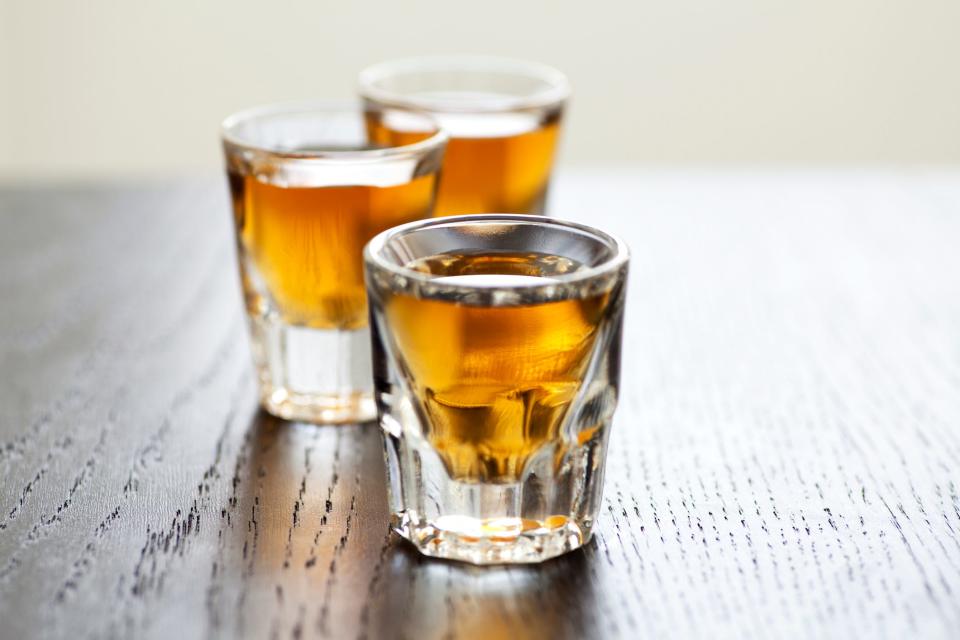Should Americans who misuse alcohol lose the 'license to drink'? Here's how it could work.
Americans’ relationship to alcohol is a topic of renewed interest, with drinking spiking during the pandemic and louder calls for increasing alcohol taxes to reduce consumption.
Researchers also are questioning what constitutes a safe amount of alcohol for one’s personal health.
But one thing about alcohol consumption is inarguable: Excessive drinking creates massive economic costs because of its effects on workplace productivity, health care expenditures and crime.
This raises the question: Should some people be required to stop drinking?
When Americans turn 21, they essentially get a license to purchase and consume as much alcohol as they want. For those who repeatedly threaten public safety because of their alcohol use – for example, after their third drunken driving conviction – should their “license to drink” get suspended?
In South Dakota, the answer is yes.
South Dakota program requires abstinence from drinking alcohol
For two decades, South Dakota has implemented a program called 24/7 Sobriety, which focuses primarily on those arrested multiple times for drunken driving or other alcohol-involved offenses. Participants must abstain from drinking altogether and undergo frequent alcohol testing.
Some wear an electronic alcohol-monitoring bracelet on their ankle. But most participants blow into a breathalyzer at a testing facility every morning and evening for several months, sometimes more than a year.
If they test positive, they are usually asked to wait and then take a second test 15 minutes later to rule out a false positive. If their blood alcohol content is above 0.00 after the second test, they are taken to jail, usually for a night or two.
Unlike most interactions with the criminal legal system, this program is very transparent. Those violating the program are subject to a swift and certain sanction.
This isn’t just a small-scale program. Figures from the South Dakota attorney general suggest that there have been more than 40,000 participants since 2005, although some people entered the program multiple times. That means a notable share of the state’s 700,000 adults has gone through the program.

Peer-reviewed research finds that participants in South Dakota's 24/7 Sobriety Program had a 49% lower probability of being arrested again during the first follow-up year.
Another study found that after counties adopted the program, the number of arrests for domestic violence and repeat drunken driving in the county decreased by 9% and 12% respectively.
Lower death rate associated with 24/7 Sobriety participation
There are also benefits to suspending one’s “license to drink” outside of traditional criminal legal outcomes.
Our study published this month in the Journal of the American Medical Association Psychiatry found that those arrested for drunken driving who participated in 24/7 Sobriety had about a 50% lower risk of dying – for any reason – during the study period. We used a series of statistical techniques to rule out alternative explanations for the findings.
How to avoid drinking without being noticed: Taking an alcohol break? Giving it up completely? Here's how to be inconspicuous
Unlike drug courts and other forms of coerced addiction treatment, this program does not require participants to enter a treatment program or attend self-help group meetings. There’s nothing preventing them from doing so, but 24/7 Sobriety requires only that they not use alcohol. In some places, participants may also be tested for other drugs to make sure they are not simply switching substances.
That said, one could imagine a variation where 24/7 Sobriety is used to help determine whether someone repeatedly convicted for alcohol-involved crimes needs additional services: For example, those who violate the program three times could be ordered to complete a substance use treatment program.
Other alternatives include using a sanction other than jail or incorporating positive incentives for compliance. Indeed, there is a wealth of research supporting "contingency management," which provides small rewards (such as a movie pass or small gift certificate) to those who go a certain amount of time without a positive drug test. It’s possible 24/7 Sobriety might achieve even better outcomes if it included a carrot as well as a stick.
It is unclear whether suspending someone’s “license to drink” will yield similar results outside of the Great Plains (studies of 24/7 Sobriety in North Dakota and Montana also suggest it is improving impaired driving outcomes), but the peer-reviewed evidence is strong enough to justify piloting a version of this program in other parts of the United States.
Excessive alcohol use continues be one of our country’s largest drug problems, accounting for 1 in 8 deaths of people ages 20 to 64. If we hope to reduce excessive drinking and its negative consequences, we must try something different.
Beau Kilmer is the McCauley Chair in Drug Policy Innovation and co-director of the Drug Policy Research Center at the nonprofit, nonpartisan RAND Corporation. Nancy Nicosia is a senior economist at RAND.
This article originally appeared on USA TODAY: Drive drunk? It could cost you your 'right to drink.'

